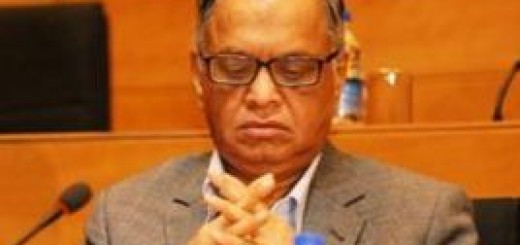Euthenasia: Yes or No? Parliament Must Take A Call on Euthanasia

By The New Indian Express,17th February 2016 06
(Note: Doctor assiseted death or euthenasia is a very sensitive issue especially among the so-called religious and conservatives socities. A very strong argumeng brought against is that it will be misused both in the religious secular world by the very kith and kin of the terimally ill patients to get rid of them fast either to grab the ancestral property or just to free themselves from the tiresome and expensive task of taking care of them. Misuse of a rule is a silly argument. Even the golden rule is broken or misused. The real golden rule is: “A rule is made to be broken.” Moses came down from the moutain with the ten golden commandments and seeing people indulging in sex and idolatry of the golde calf dashed the tablets on their altar and became the first man to break all ten commandments at one stroke. I myself wrote a researched article: “Right to die is duty to serve” The Malayam monthly ORA repeatedly asked for a Malyalam version of it which I made just to satisfy their pressing request and they published it in the september issue of 2006 but I can’t find the original English version. For me Euthenasia is equivalent to Jesus’s comand to lay down one’s  life for one’s friends. Jesus’ death was just that, offering his life so that his disciples may go free to live. More later. Let there be a detailed discussion of it both in parliament and society to enlighten the blind lot who want to hang on to life at any cosgt. james kottoor, editor)
life for one’s friends. Jesus’ death was just that, offering his life so that his disciples may go free to live. More later. Let there be a detailed discussion of it both in parliament and society to enlighten the blind lot who want to hang on to life at any cosgt. james kottoor, editor)
The Supreme Court has left it to Parliament to take a decision on whether to allow euthanasia. It cannot be faulted for taking this stand, although the Constitution grants law-making powers to the apex court through its interpretive powers. This is because euthanasia is a complicated issue involving a host of ethical questions for which clear answers are not available. Euthanasia or assisted suicide is liable to be misused and that itself is a powerful argument against permitting it. What the court grappled with was passive euthanasia under which a terminally ill patient could be denied medicines hastening his/her death. A few years ago, the court refused to allow euthanasia for a nurse who lived in a vegetative state for over three decades.
In the case of the nurse, who was a victim of rape, she did not need any medication but only food to remain alive. Her colleagues at the Mumbai hospital were ready to look after her needs. That is not the case with Michael Schumacher who is being kept alive in the hope that he would come back to life, if not to motor racing. There may not be any law on passive euthanasia but it is practised in some way or other in different parts of the world. In a well-known case, an industrialist, who was on ventilator for many weeks and could have remained technically alive for months or years, was taken off the life-support system once the family realised the pointlessness of keeping him alive. True, the patient can be allowed to determine how long he should endure pain or hopelessness. However, this is easier said than done, as it raises many a question.
For instance, what guarantee is there that it would not be misused to kill those whose life makes others’ lives difficult? In a country where old parents are neglected, there is no guarantee that it would not be misused. Euthanasia may be welcome for those who suffer from interminable pain, but then who will decide when they should be administered the medicines of death? Will a doctor who is trained to save a life take someone’s life? All these questions need to be considered while drafting the law. Parliament has its task cut out.
















